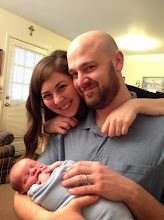[An essay written for a philosophy class in an effort to logically show the essence of a human starting at conception. However, we all know that abortion is one of the most illogical abominations and the grace of God is the only way to penetrate such hardened hearts and minds]
A pertinent decision must be made as to whether human embryos develop into humans or as humans (2, 220). John R. Meyer states that to prove the existence of a person in such an early stage, empirical evidence alone does not suffice and he insists on the necessity of a metaphysical component. Through an understanding and acceptance of the Aristotelian-Thomistic hylomorphic soul-body theory, allowing for modification due to advances in embryology, the intellective ensoulment must necessarily occur at the moment of conception, thereby giving the newly fertilized egg (the zygote), the status of personhood.
“Personhood” has developed into somewhat of a subjective term leading to many interpretations from the broad (“e.g., a living human individual”) to the more descriptive (“e.g., a life that displays self-consciousness, voluntary actions, and contributes positively to society”) (2, 208). However, the more descriptive definitions tend to exclude and devalue many of those with mentally and physically debilitating disorders (2, 208). In order to appropriately pinpoint the qualities of a “person,” it is necessary to mark those qualities that are common to every human being, rather than looking at a particular individual human being (2, 209). In addition, personhood cannot be ascribed based primarily upon specifically human body parts, as it is more than just our physical nature that distinguishes us from other species (2, 211). In reference to abortion, if doubt exists as to exactly when this “personhood” begins, the “mere probability that a human person is involved would suffice to justify an absolutely clear prohibition of any intervention aimed at killing a human embryo” (5, 10). To Aristotle and Aquinas, it is the presence of an intellective soul that determines the status of “personhood.” This soul, as a “perduring” and “permanent substance,” helps explain some “basic human experiences, such as memory, moral responsibility, promises, [and] the urge to carry projects forward to a chosen goal” (2, 211).
To understand the Aristotelian-Thomistic hylomorphic soul-body theory requires an explanation of the intellective soul (the form) and its union with the body (the matter). The word “hylomorphic” itself may be broken down into the prefix ‘hylo’, Greek for ‘matter’ (http://au.encarta.msn.com/dictionary_1861731335/hylo-.html), and the suffix ‘morph’, Greek for ‘form’ (http://au.encarta.msn.com/dictionary_/%252dmorph.html). Thomas Aquinas’ Aristotelian view upholds that a “human person is essentially a composite unified being” with the two main ingredients being form and matter (3, 137). Matter holds certain defining qualities, such as having a specific size or the ability to sense, through form (3, 137). In reference to composite beings, meaning those consisting of both soul (form) and body (matter), it is not possible for matter to exist without form and form never exists apart from matter (3, 137). Matter is considered potential being while form is the “entelechy” that causes matter to become actual thus leading to the actual being (4, 19).
The form, referred to as ‘soul’ by both Aquinas and Aristotle, may be divided into five genera of powers, with the soul itself functioning as the “organizing principle of matter” (4, 108; 3, 137) and these include the “vegetative, the sensitive, the appetitive, the locomotive, and the intellectual” (4, 108). Aquinas defines the soul in general as “the primary actuality of a physical bodily organism” (4, 23), with the same kind of actuality as knowledge (4, 22) with “organism” implying potential life (4, 23). The soul possessing the same kind of actuality as knowledge implies that the soul and its powers need not be employed to be present, such that one may have knowledge without actually using it at all times. The actual body is one that has been “informed” and a body without the form (soul) can in no way have potential life (1, 77). Life is inborn in the soul and the body participates in this life (1, 77). Of the different types of soul/powers of soul, the intellective soul is the only one found solely in human beings, allowing for powers of rational thought and those human biological powers unique to the functions of the intellective soul (3, 138). The form also has the power to individuate matter (3, 138). In other words, the form creates a distinction “between one instance of matter and another” and separates individuals (3, 138) ensuring personal identity in reference distinction between species (2, 211). Even it is within the soul’s power to create this personal identity, Aquinas elaborates that ‘my soul is not me’, and by this he means that the person and the soul are not identical to each other and the person cannot “be reduced to any faculty of the soul, such as the mind, will, or consciousness” (2, 216) and this point further stresses the utter compositeness of the human being in regards to the soul (form) and matter (body). Due to the intellective soul possessing the power to understand, it is immaterial and subsistent in that it is the “‘form’ by which the human being exists as well as that which has being in itself” (2, 216). The body-soul relationship can be further described in that “the person thinks by way of the soul” (2, 216).
Ensoulment is the instant in which the “human soul informs the matter of the human body” (3, 139). In the Aristotelian-Thomistic hylomorphic soul-body theory, the form metaphysically exists before the matter, as it is what determines the very nature of the matter. The instant upon which the matter (body) comes into being, the soul informs its nature (3, 139) and does not reside in a specific place within the body but rather it is connected as “in a relationship and in a presence” (1, 82). The possession of an intellective soul, the indication of a “person” according to Aquinas, can be observed through the activities pertinent to this type of soul such as being “alive, capable of sensation” and having or in the process of developing “the organs necessary for intellectual thought” (3, 140). This unification is not in any sense an “extrinsic addition” to the intellectuality of the soul, but rather an “internal completion of the soul in the line of its very intellectuality” (1, 40) having the power to be joined but unmixed (1, 80). In Aristotelian terms, this unification exists for the sake of the soul (1, 40). Aquinas explains further that the human soul is neither immersed in the matter of the body, nor totally contained by it (2, 218). The intellective soul is not to be considered as a second substance as it is a “metaphysical (not integral) part of the whole human being” (2, 218).
Aquinas believed the human soul to be directly created by God and, at the moment of its creation, the human soul is simultaneously infused into the body (5, 11). He argues that the intellectual powers of conceptual thought belonging to the soul are independent of matter and thus do not require any bodily organ, thereby implying the intellective soul itself is independent of matter.
Due to the inadequate embryological technology at the time of Aristotle and Aquinas, the human soul (form) was thought to join the body (matter) at a later time than conception. Aquinas believed that the “vegetative and sensitive bodies initially generated in human reproduction are not human” and he estimated the formation of a human body with an intellective soul to occur somewhere between 40 and 90 days gestation (pregnancy) (2, 214). Aquinas erroneously theorized that the “vegetative and sensitive bodies initially generated in human reproduction are not human,” but rather a human body with a soul eventually forms around the time period stated above (2, 214). However, with advanced technology the observations of human development demonstrate that there exists no such distinct separation of stages (such as between the vegetative and sensitive). In looking at early human development, within 11 hours after fertilization, also known as Carnegie Stage 1, the first polar body containing excess chromosomes exits through the zona pellucida and determines the gastrulation axis (http://www.visembryo.com/baby/1.html, http://www.visembryo.com/baby/6.html). Thirteen days post-ovulation, Carnegie Stage 6, a “primitive streak” appears, indicating bilateral symmetry and the beginning of gastrulation (http://www.visembryo.com/baby/6.html). The gastrulation process creates the three layers, the ectoderm, mesoderm and endoderm, from which specific parts of the body develop such as the nervous system, the reproductive system, and the digestive tract, respectively (http://www.visembryo.com/baby/6.html). This implies the intellectual soul’s (form) intentional and continuous organization of the human species from the moment of conception leading to its respective biological organs. In Aquinas’ statement that the soul does not exist before the “organization of the body,” John Haldane and Patrick Lee believe his “argument only shows, and he surely only held, that the beginnings, or primordial, of such organs, and in particular, the primorium of the brain, must be present” (5, 13). Aquinas supported that the presence of organs is necessary for human ensoulment. However, John Haldane and Patrick Lee state that his view does not necessarily mean the “organs must be developed to the extent of having a directly exercisable capacity to support the operations relevant to them” (5, 12). Through applying Aquinas’ metaphysical points to current embryological information, they claim the conclusion is that a person is present from conception (5, 17) and give Aquinas’ general metaphysical point on the matter: “Now it belongs to the natural order that a thing is gradually brought from potency to act. And therefore in those things which are generated we find that at first each is imperfect and afterwards is perfected” (5, 17).
The Aristotelian-Thomistic hylomorphic soul-body theory allows for a better understanding of the metaphysics of the moment of ensoulment. The metaphysics of this theory may be combined with science, but must be adapted to our times in order to allow for the exponentially increasing scientific knowledge. Ensoulment at conception is in complete agreement with this theory, thus endowing the product of conception, the zygote, personhood in the sense that the zygote is a member of the human race with the complete ability to continuously grow and develop with nourishment, if unhindered, just as a toddler continues to grow and develop with proper care.
References
Anscombe, G. E. M. & Geach, P. T. (1961) Three Philosophers, Great Britain: Basil Blackwell & Mott Ltd.
Aquinas, T. (1999) On Human Nature, Indiana: Hackett Publishing Company, Inc.
Eberl, J. T. (2000) ‘The Beginning of Personhood: A Thomistic Biological Analysis’, Bioethics [Electronic], 14, no. 2. Academic Search Premier, EBSCOhost [Accessed 11 November 2008].
Haldane, J. & Lee, P. 2003. Aquinas on Human Ensoulment, Abortion and the Value of Life. Philosophy, [online]. 78, 255-278, Available at: http://www2.franciscan.edu/plee/aquinas_on_human_ensoulment.htm [Accessed 11 November 2008].
Meyer, J. R. (2006) ‘Embryonic Personhood, Human Nature, and Rational Ensoulment’, Heythrop Journal: A Bimonthly Review of Philosophy and Theology [Electronic], 47, no. 2: 206-225. Academic Search Premier, EBSCOhost [Accessed November 11, 2008].
MSN. Encarta. 2008. [online] Available at: http://encarta.msn.com/encnet/ features/dictionary/dictionaryhome.aspx [Accessed 8 December 2008].
Pegis, A. C. (1963) At the Origins of the Thomistic Notion of Man, New York: The Macmillan Company.
The Visible Embryo. [Online] Available at: http://www.visembryo.com/baby /index.html [Accessed 30 November 2008].










